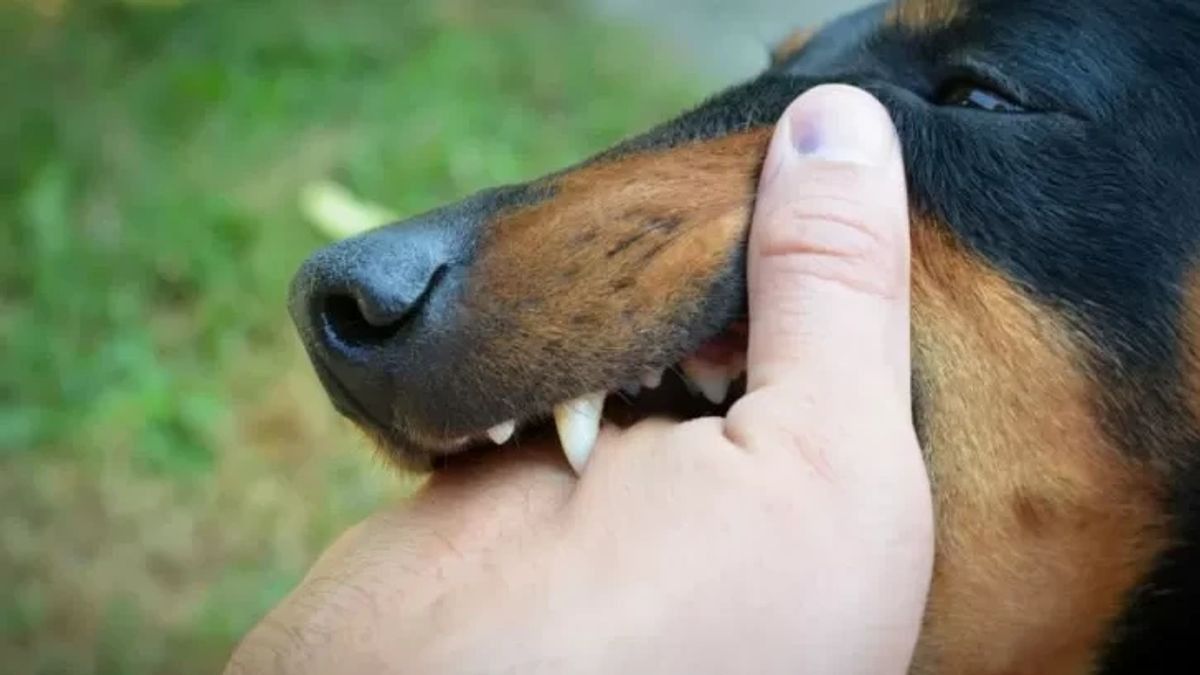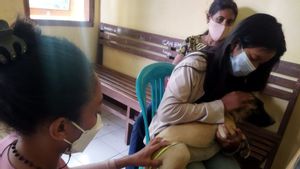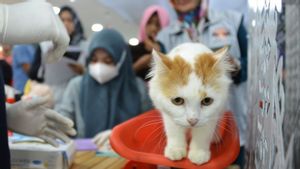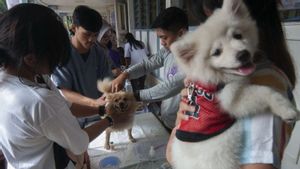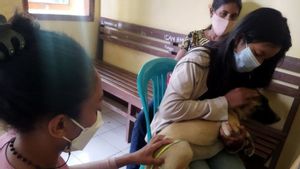JAKARTA - The DKI Jakarta Provincial Government has prepared two referral hospitals for patients who are bitten by a dog or animal that transmits rabies. This is in anticipation of the handling of rabies in Jakarta which is referred to as a high-rabies risk area.
"The DKI Provincial Government has alerted hospitals that provide anti-rabies vaccines, namely Tarakan Hospital in Central Jakarta and also Sulianti Saroso Hospital in Tanjung Priok," said Head of the Surveillance, Epidemology and Immunization Section of the DKI Jakarta Health Office Ngabila Salama in his statement, Tuesday, June 20.
Ngabila advised residents who were bitten by dogs or other animals to immediately receive treatment at the hospital, although they did not know for sure whether the animal had rabies or not.
"It is hoped that even if our dog doesn't know rabies or not, of course it needs to be taken to the referral hospital immediately for further management and anti-rabies vaccine administration," said Ngabila.
Meanwhile, the DKI Provincial Government has also injected rabies vaccination into animals. It aims to provide immunity to animals against viral infections that cause rabies disease.
The DKI Provincial Government is targeting vaccination of 43 thousand animals in Jakarta. The realization is that currently only 37.7 percent of animals have been vaccinated, with details of 3,146 dogs and 13,280 cats.
"The targeted vaccination targets are the population of dogs, cats, civets, and monkeys," said DKI Jakarta Food, Maritime and Agriculture Security Service (DKPKP) Suharini Eliawati.
Since 2004, DKI Jakarta status is a Rabies-Free area stipulated by the Decree of the Minister of Agriculture Number 566/Kpts/PD.640/10/2004 concerning the Statement of the Province of DKI Jakarta Free Rabies. However, Eli emphasized that Jakarta has a fairly high risk of rabies transmission.
"DKI Jakarta Province remains a high risk area for rabies transmission because it borders endemic areas and high-rabies transmission animal traffic to the DKI Jakarta area," he explained.
另请阅读:
Furthermore, Eli explained, anti-rabies vaccination in animals is carried out to obtain maximum population immunity, control population through sterilization, implementation of rabies surveillance, implementation of integrated bite management, socialization and education to the public about rabies and ownership of responsible animals.
"Since the last few years, rabies vaccination has not only been for animals owned but wild/unowned animals have also been targeted for vaccination, along with population control activities through sterilization," he added.
The English, Chinese, Japanese, Arabic, and French versions are automatically generated by the AI. So there may still be inaccuracies in translating, please always see Indonesian as our main language. (system supported by DigitalSiber.id)
